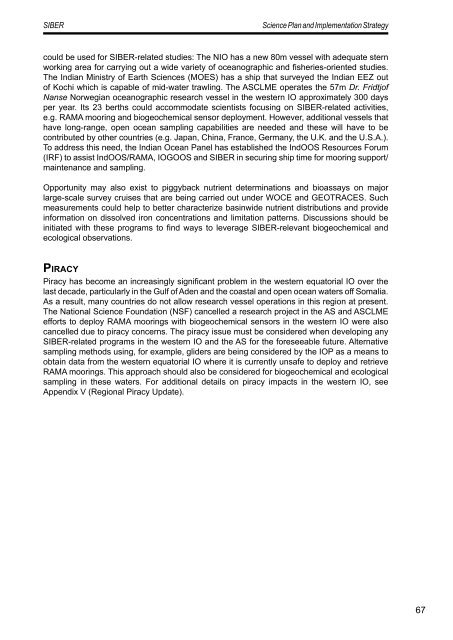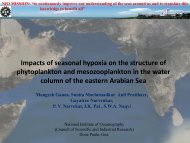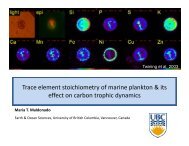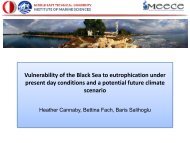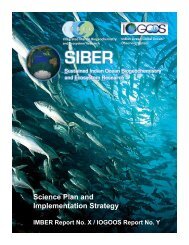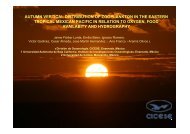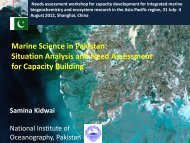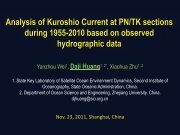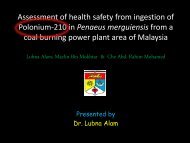SIBER SPIS sept 2011.pdf - IMBER
SIBER SPIS sept 2011.pdf - IMBER
SIBER SPIS sept 2011.pdf - IMBER
You also want an ePaper? Increase the reach of your titles
YUMPU automatically turns print PDFs into web optimized ePapers that Google loves.
<strong>SIBER</strong><br />
Science Plan and Implementation Strategy<br />
could be used for <strong>SIBER</strong>-related studies: The NIO has a new 80m vessel with adequate stern<br />
working area for carrying out a wide variety of oceanographic and fisheries-oriented studies.<br />
The Indian Ministry of Earth Sciences (MOES) has a ship that surveyed the Indian EEZ out<br />
of Kochi which is capable of mid-water trawling. The ASCLME operates the 57m Dr. Fridtjof<br />
Nanse Norwegian oceanographic research vessel in the western IO approximately 300 days<br />
per year. Its 23 berths could accommodate scientists focusing on <strong>SIBER</strong>-related activities,<br />
e.g. RAMA mooring and biogeochemical sensor deployment. However, additional vessels that<br />
have long-range, open ocean sampling capabilities are needed and these will have to be<br />
contributed by other countries (e.g. Japan, China, France, Germany, the U.K. and the U.S.A.).<br />
To address this need, the Indian Ocean Panel has established the IndOOS Resources Forum<br />
(IRF) to assist IndOOS/RAMA, IOGOOS and <strong>SIBER</strong> in securing ship time for mooring support/<br />
maintenance and sampling.<br />
Opportunity may also exist to piggyback nutrient determinations and bioassays on major<br />
large-scale survey cruises that are being carried out under WOCE and GEOTRACES. Such<br />
measurements could help to better characterize basinwide nutrient distributions and provide<br />
information on dissolved iron concentrations and limitation patterns. Discussions should be<br />
initiated with these programs to find ways to leverage <strong>SIBER</strong>-relevant biogeochemical and<br />
ecological observations.<br />
Pir a c y<br />
Piracy has become an increasingly significant problem in the western equatorial IO over the<br />
last decade, particularly in the Gulf of Aden and the coastal and open ocean waters off Somalia.<br />
As a result, many countries do not allow research vessel operations in this region at present.<br />
The National Science Foundation (NSF) cancelled a research project in the AS and ASCLME<br />
efforts to deploy RAMA moorings with biogeochemical sensors in the western IO were also<br />
cancelled due to piracy concerns. The piracy issue must be considered when developing any<br />
<strong>SIBER</strong>-related programs in the western IO and the AS for the foreseeable future. Alternative<br />
sampling methods using, for example, gliders are being considered by the IOP as a means to<br />
obtain data from the western equatorial IO where it is currently unsafe to deploy and retrieve<br />
RAMA moorings. This approach should also be considered for biogeochemical and ecological<br />
sampling in these waters. For additional details on piracy impacts in the western IO, see<br />
Appendix V (Regional Piracy Update).<br />
67


